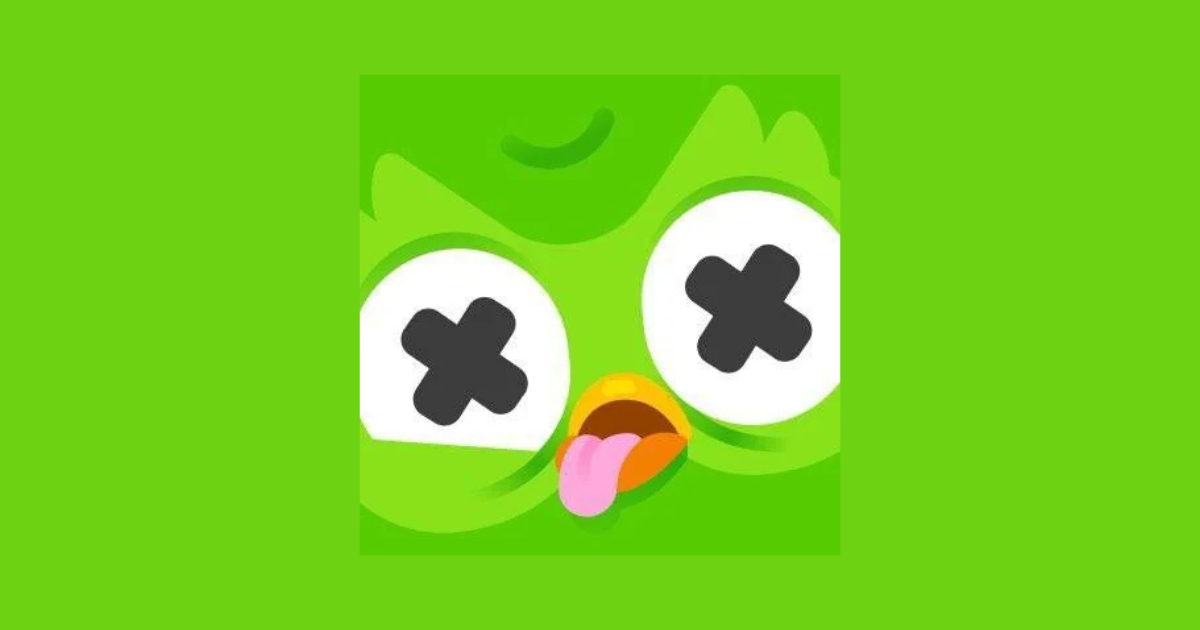The language learning app announced on its social media that Duo, the bird mascot, passed away:
After that, internet users became very active. However, instead of lots of regular people posting, most of the activity came from brands.
While some people talked about the “news” of Duo’s death, their posts didn’t directly focus on it, unlike the way corporate accounts did.
This creates an interesting story that reflects the Dead Internet Theory, how marketing works today, and the changing Internet.
But to understand this, we need to look at the context surrounding the death of the Duolingo owl.
What Is Duolingo, and How Did The Duolingo Owl Die?
Duolingo is a language learning app that makes learning a new language fun and interactive. It’s very popular. In fact, data shows it had 103.4 million monthly active users in 2024.
One reason for this is that Duolingo focuses on making the learning experience enjoyable and uses reminders to get people to keep coming back.
Duo, the app’s mascot, sends constant notifications to remind users to study. This became a meme in itself. While many people joked about the Duolingo owl, nobody expected the company to actually “kill” the character. But that’s exactly what happened.
At the time of writing, there hasn’t been any confirmation on why Duo is gone, but it’s likely the company has a plan.
How Did Social Media React To The Death Of The Duolingo Owl?
Many memes about the Duolingo owl dying have appeared, but there’s an interesting pattern when you take a closer look.
While some real people have made memes about the owl’s death:
A big portion of popular posts about the owl’s death are from brands, not individuals:
Several social media accounts, including Assassin’s Creed, World of Warcraft, Chipotle, and Chess.com, all posted about the Duolingo owl’s death. These posts reached millions of views across social media platforms.
These brands were part of the joke—something that wasn’t true for many regular users. A common reaction from users against the owl’s death involved sharing stories about Duolingo replacing employees with artificial intelligence.

What Does This Reaction To The Duolingo Owl’s Death Mean?
First, the death of the Duolingo owl is a marketing tactic—and a very effective one at that, as it has grabbed a lot of attention for the brand.
There’s no such thing as bad publicity and Duolingo has gotten plenty of it. However, something is interesting beneath the surface of how this has played out.
One idea is the Dead Internet Theory. This theory suggests that more and more internet traffic and posts are being made by bots and AI, instead of real people.
What used to be a lively, people-driven network is now mostly about selling products—and the rise of brands online fits this theory.
Studies show that social media has changed the way companies communicate. In today’s connected world, failing to engage this way can hurt them. So, they must act in ways that might have seemed unthinkable in the past.
For example, could you imagine McDonald’s in the 1980s joking about Ronald’s death? That would have been shocking in a strange way.
But, while the death of Duo, the Duolingo owl, is surprising, it makes sense in today’s world. It aligns with the humor we see from friends and peers online; it fits with how we view modern life.
Companies copying this behavior is intentional. Businesses now behave more like people online because it helps to “drive continued engagement,” as studies show.
But there’s something that feels off, and that’s where the Dead Internet Theory comes back into play. When companies dominate a conversation, like with the death of the Duolingo owl, it feels fake.
But what’s different with the Duolingo owl’s death is that brands took over the conversation before the public really got into it. Companies were the main drivers of the trend. There was little natural excitement before brands joined in.
This shows elements of the Dead Internet Theory in action.
From my research, one of the most popular posts on Twitter from a real person about Duo’s death is from someone talking about Duolingo’s AI-related layoffs. But most of what’s shared on the platform are brands posting self-congratulatory memes, trying to outdo each other.
At its core, this won’t bother Duolingo—or the other brand accounts involved. Duolingo made a smart marketing move that worked: people are talking about the brand, and it has gained a lot of visibility.
However, beneath all of this is the reality of a changing internet. It’s a space that’s becoming less about people and more corporate than ever.
The Duolingo owl may be gone, but the Dead Internet Theory is still alive.


